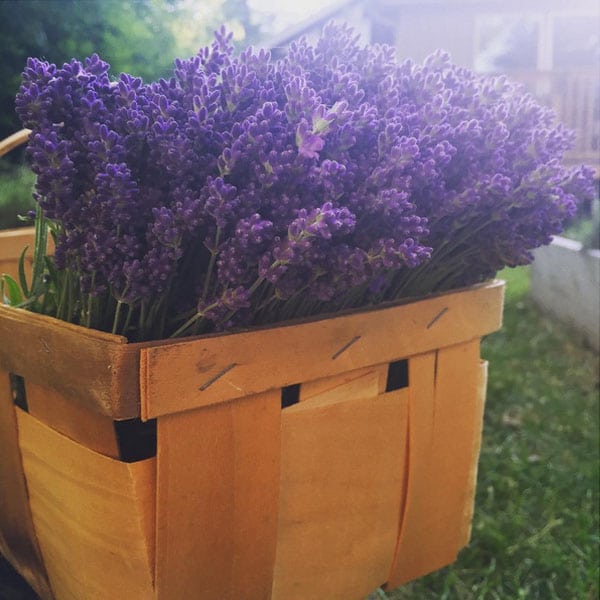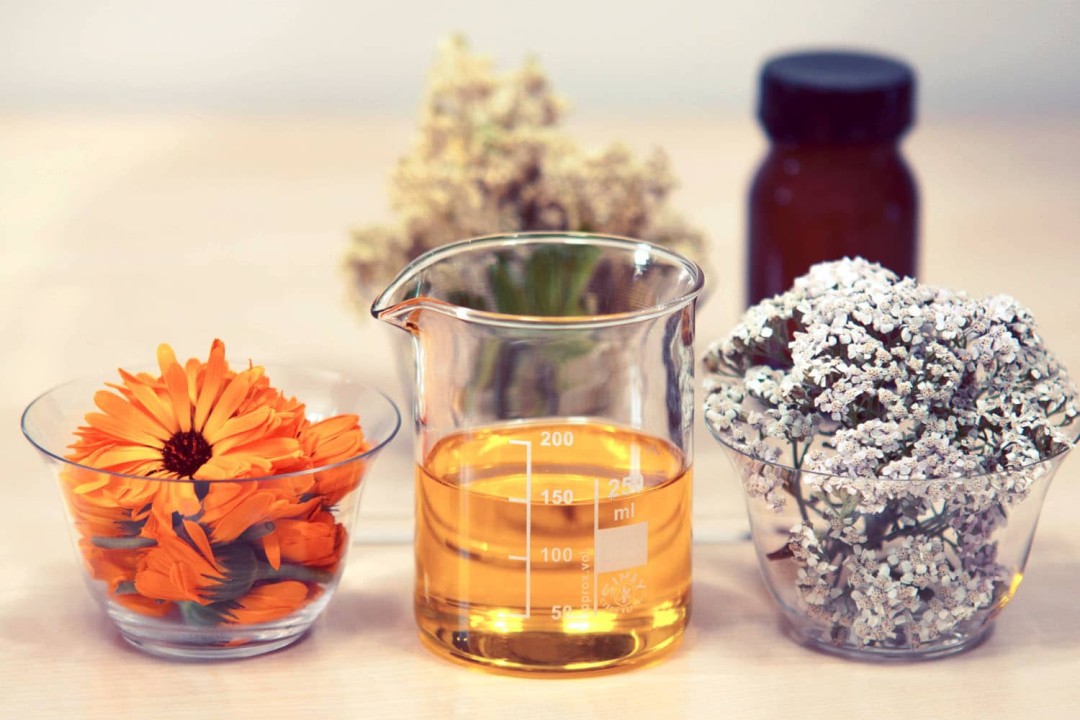Natural Ingredients Dictionary (*Beta)
Beta Development
Please note that this page is still a work in progress page. We don’t have everything listed here just yet, but are adding to it regularly.
At Lovebee, we believe in complete ingredient transparency when it comes to our handcrafted all natural products! We ourselves want to know the ingredients of the products we use in everyday life, and know you do too!
While we list every product’s ingredients under the ingredients tabs on each product page, we wanted to go even further and help define and/or give context to the ingredients we use. Within this page you will find descriptions and product recommendations when applicable too.
It’s very important to note that we have made this section available to you to help bring awareness and further educate about product ingredients. It should be understood that this page is not exhaustive however, and given the length and breadth of the topic we may have made mistakes or typos.
If you’d like to submit any corrections, or have any other questions about ingredients, please feel free to contact us at any time!




Jump to section…
Butters
Carrier Oils
Essential Oils
Extracts
Liquids (non-oil) & Gels
Powders
Vitamins
Waxes
Butters
Butters, such as mango butter and shea butter, are used in many of our all natural products and have been revered for their soothing and moisturising properties. Butters are a raw, natural product that is created from the fatty portions of various types of fruits. These butters are then combined with various other ingredients to make many of the finished Lovebee products you love!
Natural butters are solid, fatty oils that come from nuts and seeds. They are used in skincare for their nourishing and moisturizing properties. Butters can be used alone or mixed with other ingredients to create skincare products such as balms, salves, and body butters. Some common butters used in natural skincare include shea butter, cocoa butter, and mango butter.
Aloe Butter: (Aloe barbadensis leaf extract (and) hydrogenated vegetable oil)
Aloe butter creates a smooth, creamy consistency that is easy to use in skin care formulations. It contains the benefits of aloe vera, including anti-inflammatory, anti-bacterial, and skin soothing properties, while also providing deep moisturization to the skin.
Almond Butter: (Prunus amygdalus dulcis (sweet almond) oil (and) hydrogenated vegetable oil)
Almond butter is made by blending sweet almond oil with hydrogenated vegetable oil to create a smooth, buttery consistency that is rich in essential fatty acids, vitamins, and minerals. It has excellent emollient and skin-softening properties, making it ideal for use in dry skin formulations.
Argan Butter: (Argania spinosa (argan) kernel oil (and) hydrogenated vegetable oil)
Argan butter is made by blending argan oil with hydrogenated vegetable oil to create a smooth, luxurious consistency that is rich in vitamins, antioxidants, and essential fatty acids. It has excellent moisturizing properties and is especially beneficial for dry, damaged skin.
Avocado Butter: (Persea gratissima (avocado) oil (and) hydrogenated vegetable oil)
Avocado butter is made by blending avocado oil with hydrogenated vegetable oil to create a smooth, creamy consistency that is rich in vitamins, minerals, and essential fatty acids. It has excellent moisturizing properties and is especially beneficial for mature, dry, or damaged skin.
Babassu Butter: (Orbignya oleifera (babassu) seed oil (and) hydrogenated vegetable oil)
Babassu butter is made by blending babassu oil with hydrogenated vegetable oil to create a smooth, creamy consistency that is rich in antioxidants, vitamins, and essential fatty acids. It has excellent emollient and skin-softening properties and is especially beneficial for dry, irritated, or sensitive skin.
Cocoa Butter: (Theobroma cacao)
Cocoa butter is a type of vegetable fat that comes from cocoa beans. It has a rich, creamy texture and a mild chocolatey aroma. Cocoa butter is used in skincare products due to its moisturizing and healing properties. It is high in fatty acids, which help to nourish and hydrate the skin, and antioxidants, which protect the skin from environmental stressors.
Coconut Butter: (Cocos nucifera)
Coconut butter is made from the flesh of mature coconuts. It has a smooth, creamy texture and a sweet coconut aroma. Coconut butter is used in skincare products for its moisturizing and nourishing properties. It is rich in medium-chain fatty acids, which help to hydrate and soften the skin, and antioxidants, which protect the skin from free radical damage.
Grapeseed Butter: (Vitis vinifera)
Grapeseed butter is a semi-solid vegetable fat that is made from the seeds of grapes. It has a light texture and is easily absorbed by the skin. Grapeseed butter is used in skincare products for its moisturizing and regenerative properties. It is high in linoleic acid, which helps to balance the skin’s natural oils, and antioxidants, which protect the skin from free radical damage.
Kokum Butter: (Garcinia indica)
Kokum butter is a hard, white vegetable fat that comes from the seeds of the kokum tree. It has a dry, powdery texture and a mild, nutty aroma. Kokum butter is used in skincare products for its moisturizing and healing properties. It is rich in essential fatty acids, which help to nourish and hydrate the skin, and antioxidants, which protect the skin from environmental stressors.
Hemp Seed Butter: (Cannabis sativa)
Hemp seed butter is a creamy, light-colored vegetable fat that is made from the seeds of the hemp plant. It has a soft, smooth texture and a mild, nutty aroma. Hemp seed butter is used in skincare products for its moisturizing and anti-inflammatory properties. It is high in essential fatty acids, which help to nourish and hydrate the skin, and antioxidants, which protect the skin from free radical damage.
Macadamia Butter: (Macadamia Ternifolia Seed Oil, Hydrogenated Vegetable Oil)
Macadamia butter is made from macadamia nut oil, which is high in monounsaturated fatty acids and antioxidants. It has a creamy texture and is easily absorbed into the skin, making it a popular choice in skincare products.
Mango Butter: (Mangifera Indica (Mango) Seed Butter)
Mango butter is derived from the kernel of the mango fruit. It is high in fatty acids, antioxidants, and vitamins, making it a great moisturizer and skin softener. It is often used in skincare products to treat dry skin, eczema, and psoriasis.
Olive Butter: (Olea Europaea (Olive) Fruit Oil, Hydrogenated Vegetable Oil)
Olive butter is a combination of olive oil and hydrogenated vegetable oil. It is a rich source of antioxidants, vitamin E, and essential fatty acids, which help to nourish and protect the skin. It is often used in skincare products to moisturize and soothe dry or sensitive skin.
Pumpkin Seed Butter: (Cucurbita Pepo (Pumpkin) Seed Oil, Hydrogenated Vegetable Oil)
Pumpkin seed butter is derived from pumpkin seed oil and hydrogenated vegetable oil. It is high in vitamins A, C, and E, as well as antioxidants and essential fatty acids, which make it a great moisturizer and skin protectant. It is often used in skincare products to improve skin texture and reduce the appearance of fine lines and wrinkles.
Shea Butter: (Butyrospermum Parkii (Shea) Butter)
Shea butter is derived from the nuts of the shea tree. It is high in fatty acids, antioxidants, and vitamins, making it a great moisturizer and skin healer. It is often used in skincare products to soothe and protect dry or irritated skin, as well as to reduce the appearance of scars and stretch marks.
Soy Butter: (Glycine Soja (Soybean) Oil, Hydrogenated Vegetable Oil)
Soy butter is made from soybean oil and hydrogenated vegetable oil. It is high in fatty acids and vitamin E, which make it a great moisturizer and skin protectant. It is often used in skincare products to soothe and heal dry or damaged skin, as well as to reduce the appearance of fine lines and wrinkles.
Carrier Oils
Carrier oils, also known as base oils, are vegetable oils used to dilute essential oils and absolutes before they are applied to the skin. In other words, carrier oils ‘carry’ the essential oil onto the skin. Cold-pressing and maceration are the two main methods of producing carrier oils. Diluting essential oils is a critical safety practice in skincare. Carrier oils do not contain a concentrated aroma as essential oils do, though some such as olive, have a mild distinctive smell. Carrier oils do not evaporate like essential oils, which are more volatile. The premium carrier oils we use in Lovebee products are natural and certified organic.
Carrier oils are non-volatile oils that are used to dilute essential oils and other concentrated ingredients in skincare products. They are often derived from nuts, seeds, or fruit and are used in skincare for their nourishing and moisturizing properties. Carrier oils can be used alone as a facial or body oil, or as a base for creating customized skincare products. Some common carrier oils used in natural skincare include jojoba oil, coconut oil, and avocado oil.
Argan Oil (Argania spinosa)
Argan oil is a plant oil produced from the kernels of the argan tree that is endemic to Morocco. Read more
Avocado Oil (Persea gratissima)
Avocado oil is an edible oil pressed from the fruit of the Persea americana (avocado). As a food oil, it is used as an ingredient in other dishes as well as a cooking oil. In our case, it is also used in cosmetics for its regenerative and moisturizing properties. Avocado oil is pressed from the fleshy pulp surrounding the avocado pit excluding the pit itself. Read more
Castor Oil (Ricinus communis)
Castor oil is a vegetable oil pressed from castor beans. Castor oil is a colourless to very pale yellow liquid with a distinct taste and odor. Castor oil is well known as a source of ricinoleic acid, a monounsaturated, 18-carbon fatty acid, making it an excellent natural moisturizer. Read more
Clear / Golden Jojoba Oil (Simmondsia chinensis)
Jojoba oil is the liquid produced in the seed of the jojoba plant, a shrub, which is native to southern Arizona, southern California, and northwestern Mexico. The oil makes up approximately 50% of the jojoba seed by weight. The terms “jojoba oil” and “jojoba wax” are often used interchangeably because the wax visually appears to be a mobile oil, but as a wax it is composed almost entirely (~97%) of mono-esters of long-chain fatty acids and alcohols, accompanied by only a tiny fraction of triglyceride esters. This composition accounts for its extreme shelf-life stability and extraordinary resistance to high temperatures, compared with true vegetable oils. Read more
Coconut Oil (Cocos nucifera)
Fractionated Coconut Oil (Caprylic/capric triglyceride)
Hemp Seed Oil (Cannabis sativa)
Hemp seed oil is obtained by pressing cold pressing hemp seeds. Cold pressed, unrefined hemp oil is dark to clear light green in color, with a nutty flavour. Hemp seeds are a good source of polyunsaturated and essential fatty acids. They have about a 3:1 ratio of omega-6 to omega-3, which is considered in the optimal range. Studies have shown that giving hemp seed oil to people with eczema may improve blood levels of essential fatty acids. Read more
Olive Oil (Olea europaea)
Olive oil is a liquid fat obtained from olives, a traditional tree crop of the Mediterranean Basin. The oil is produced by pressing whole olives. While it is commonly used in cooking, it is also used largely in cosmetics too. Olive oil contains high amounts of antioxidants and has Strong anti-inflammatory Properties.
Sunflower Oil: (Helianthus annuus)
Sunflower oil is the non-volatile oil pressed from the seeds of sunflower and is commonly used in cosmetic formulations as an emollient (a preparation that softens the skin). It’s a rich source of fatty acids that skin can use, including linoleic acid, which is excellent for hydrating dry skin. Read more
Sweet Almond Oil (Prunus dulcis): Sweet almond oil is obtained from the dried kernel of sweet almonds. It’s a lightweight emollient (softens the skin) that easily absorbs into the skin and is high in in oleic acid, protein, and Vitamin E. Almonds are native to the Mediterranean climate region of the Middle East, from Syria, Turkey, Iran and eastward to Pakistan. Read more
Essential Oils
Essential oils are the backbone of our natural products. Essential oils are the concentrated natural oils obtained by steam / water distillation or cold pressing of plant material. In simpler terms, the “essence” or properties of the original botanical material are extracted, and remain in a pure oil which is then used in a variety of applications. For us, it’s making wonderfully effective all natural products! As you can imagine, as there are many different plants, there are many different oils which contain numerous properties.
Essential oils are highly concentrated, volatile oils that are extracted from plants. They are used in natural skincare for their therapeutic properties such as soothing, balancing, and rejuvenating. Essential oils can be used alone or mixed with carrier oils or other ingredients to create skincare products such as facial serums, bath oils, and massage oils. Some common essential oils used in natural skincare include lavender oil, tea tree oil, and peppermint oil.
Roman Chamomile (Chamaemelum nobile)
Commonly known as chamomile, Roman chamomile, English chamomile, garden chamomile, ground apple, low chamomile, mother’s daisy or whig plant, chamomile is a low perennial plant found naturally in dry fields and around gardens. Read more
English Lavender (Lavandula angustifolia)
Most commonly ‘true lavender’ or ‘English lavender’, (though not native to England) is a flowering plant in the family Lamiaceae, native to the Mediterranean (Spain, France, Italy, Croatia etc.) Read more
Extracts
Extracts are concentrated liquid or powdered substances that are derived from plants. They are used in natural skincare for their therapeutic properties such as antioxidant, anti-inflammatory, and skin brightening. Extracts can be used alone or mixed with other ingredients to create skincare products such as facial toners, serums, and masks. Some common extracts used in natural skincare include green tea extract, aloe vera extract, and chamomile extract.
Coconut Oil Extract ()
Coming soon.
Grapefruit Seed Extract ()
Coming soon.
Rosemary Extract ()
Coming soon.
Vanilla Extract ()
Coming soon.
Liquids (non-oil) & Gels
Non-oil liquids and gels are used in natural skincare as a base for creating skincare products such as facial toners, serums, and gels. They are often made from water or hydrosols and can be used alone or mixed with other ingredients. Some common liquids and gels used in natural skincare include witch hazel, aloe vera gel, and rose water.
Aloe Vera ()
Coming soon.
Distilled Water (Aqua)
Coming soon.
Honey ()
Coming soon.
Vegetable Glycerin()
Coming soon.
Powders
Powders are finely ground substances that are used in natural skincare for their therapeutic properties such as exfoliating, cleansing, and detoxifying. They can be used alone or mixed with other ingredients to create skincare products such as facial scrubs, masks, and cleansers. Some common powders used in natural skincare include oatmeal, kaolin clay, and activated charcoal.
Arrow Root Powder ()
Arrowroot powder is a starch derived from a South American plant and is used as a thickener in skin care products.
Waxes
Waxes are malleable (soft / workable) solids that are a diverse class of organic compounds. Waxes are are lipophilic, that is, they tend to combine with or dissolve in lipids or fats. When combine with other ingredients, waxes create a protective, film-forming and thickening effect. While providing stability in products, they also enhance their viscosity and consistency.
Waxes are solid, fatty substances that are used in natural skincare for their emollient and protective properties. They can be used alone or mixed with other ingredients to create skincare products such as lip balms, salves, and body butters. Some common waxes used in natural skincare include beeswax, candelilla wax, and carnauba wax.
Vitamins
Waxes are malleable (soft / workable) solids that are a diverse class of organic compounds. Waxes are are lipophilic, that is, they tend to combine with or dissolve in lipids or fats. When combine with other ingredients, waxes create a protective, film-forming and thickening effect. While providing stability in products, they also enhance their viscosity and consistency.
Waxes are solid, fatty substances that are used in natural skincare for their emollient and protective properties. They can be used alone or mixed with other ingredients to create skincare products such as lip balms, salves, and body butters. Some common waxes used in natural skincare include beeswax, candelilla wax, and carnauba wax.
Beeswax (cera alba)
Beeswax is a natural wax produced by honey bees of the genus Apis that has been used in many different ways for thousands of years. Chemically, beeswax consists mainly of esters of fatty acids and various long-chain alcohols. One of the key ingredients in salve-making is beeswax. In cosmetics, beeswax provides protection against irritants while still allowing the skin to breathe. It also offers anti-inflammatory, antibacterial and antiviral benefits making it a very popular ingredient. Read more
Candelilla Wax (Euphorbia antisyphilitica)
Candelilla wax is derived from the leaves of the Candelilla, a Mexican shrub. The unrefined wax has a deep yellow colour and a pleasant scent. Candelilla wax has a high oil binding capacity and is less sticky than beeswax. It is also used to adjust viscosity in water-in-oil emulsions. Candelilla wax adds gloss and hardness in cosmetic products. Read more
Mango Butter ()
Coming soon.
Unrefined Shea Butter ()
Coming soon.